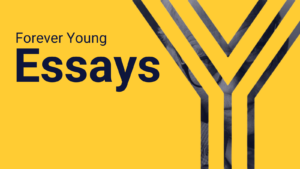
The word peace has many definitions and dimensions, from the end of a large-scale war to a personal state of inner calm. But in some form (or in many), peace is sought or cherished by pretty much every human being as a basic condition for happiness. Indeed, peace is so important to our lives that it is also what we most commonly wish the dead.
You don’t have to agree with Hobbes – or with the solutions he proposes – to feel the urgency in his famous words that a state of violence leaves “no place for industry, because the fruit thereof is uncertain, and consequently no culture of the earth, […] no commodious building, no account of time, no arts, no letters”. But what can be done to support peace, to prevent violence or to stop it, once fighting has taken hold?
A moment of awakening
Michael Young was one of a group of leaders who engaged with this question in the mid-1980s, amid growing concern at rising violence around the world and the intractable nature of many long-running conflicts.
Many of my generation remember Michael Buerk’s reporting from the Ethiopian famine, and the Live Aid concert of 1985, as a moment of childhood awakening to acute needs elsewhere. Less widely remembered is that this famine, like others before and after it, came about amid a crippling civil war.
Violence was not the only cause of misery in the world of the 1980s. But it was a significant one then – and is even more so today, with more than three-quarters of the world’s extreme poor now living in fragile and conflict-affected states, left behind as remarkable progress has taken place elsewhere.
Seeking solutions
Young and those he worked with understood the importance of finding solutions to violent conflict, and the complexity of that endeavour. With Martin Ennals (Secretary General of Amnesty International, and founder of Article 19), Desmond Tutu, and eminent sociologists from other nations, Young founded International Alert – the organisation I now lead – in the mid-1980s, to respond to that need.
Building peace is more complicated than mobilising vital food aid or developing new infrastructure. The reasons people fight are always complex, and cycles of violence are hard to break. A ceasefire might stop violence, but it does not necessarily resolve the conflict between those fighting, or the issues that led to that conflict. Violence can easily re-occur, including when new tensions or desires for change arise in society.
Building sustainable peace is about supporting positive social change. Conflict is inevitable in any society, and (when non-violent) often a productive mechanism for that society’s evolution. A better definition of societal peace, therefore, is not simply the absence of violence but the ability to find non-violent solutions to the conflicts that will inevitably arise. That involves changes in attitudes, behaviour, and often also in institutions.
A complex social endeavour
Here, I think, is one key link between Michael Young’s overall work and his contribution to what became International Alert. From the start, Alert understood peacebuilding as a complex social endeavour, seeking to combine operational engagement with policy research and generating a growing body of openly-accessible evidence that would influence and shape the approaches of others. Its original Articles of Association gave prominence to the establishment of a library of such knowledge accessible to all – a function now fulfilled by our website, but with the same underlying logic.
Another link with Young’s work elsewhere is the emphasis on the marginalised and ignored.
Photo by Christopher Sardegna on Unsplash
Structural violence
The conditions in society that keep some individuals or groups in positions of power and others far away from that power – exists on a continuum with the kinds of violence we more usually call war or conflict. Alert’s peacebuilding work is not focused on the treaties between two warring states’ leaders, but on the engagement of people directly affected by violence, usually at the community level, and especially those most likely to be left out of traditional peace-making efforts. That’s not just an ethical imperative: peace is far more sustainable when the conditions for it are shaped inclusively by all in society, rather than by a powerful few.
With others, International Alert was instrumental in the civil society coalition for what became UN Security Council Resolution 1325 on Women, Peace and Security – a historic recognition of the importance of including the half of the world’s population that was generally left out of peace negotiations. We remain active in pushing for those commitments – made over 20 years ago – to be met: look at a newspaper photograph of most peace negotiations and you’ll immediately see why. We work with networks of women peacebuilders in many contexts, with powerful results. And our research focuses on issues such as systemic violence against people with disabilities, or the needs of LGBTQ+ communities in societies working to deal with violent conflict.
I never had the privilege of meeting Michael Young, and I cannot now ask him whether the International Alert of today – with our 250 staff across 15 countries – feels similar or different to what he helped to found almost 40 years ago. But the fundamentals that drive our work are ones I’m confident he would recognise and support.
Explore our Forever Young hubPeace is far more sustainable when the conditions for it are shaped inclusively by all in society, rather than by a powerful few. Nic Hailey CMG
